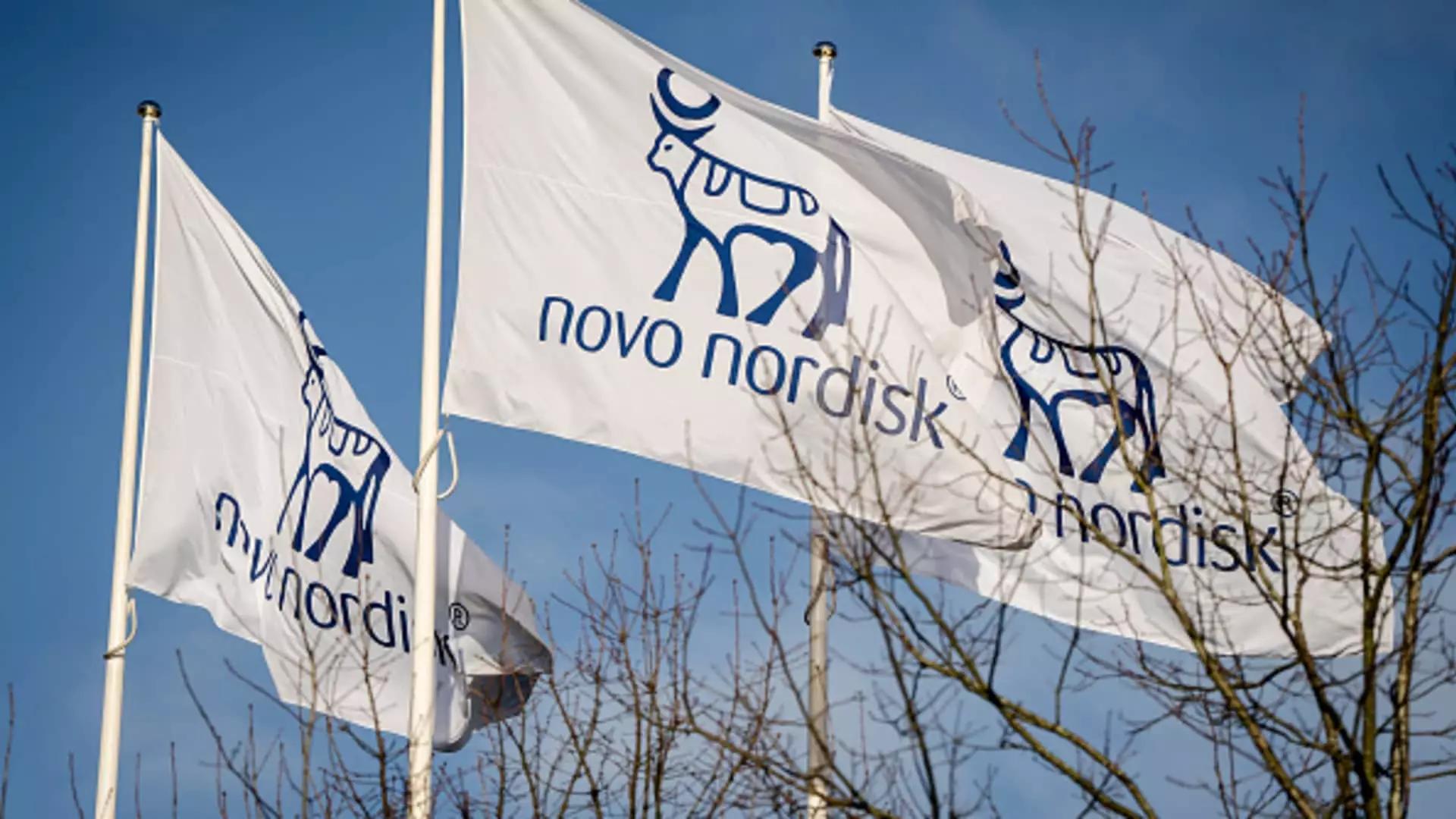In a striking development that may redefine diabetes management, Novo Nordisk has unveiled compelling data from a pivotal trial of its oral medication, Rybelsus. This significant outcome suggests that the pill could drastically alter the landscape for individuals suffering from both diabetes and heart disease, offering them a fresh opportunity for improved health. The findings, presented earlier this week at the American College of Cardiology’s Annual Scientific Session in Chicago, reveal that Rybelsus reduces the risk of severe cardiovascular events, such as heart attacks and strokes, by 14% when compared to placebo after an average follow-up of four years.
Such statistics may appear dry at first glance, yet they embody a beacon of hope for countless patients. Given that diabetes afflicts over 34 million Americans and is intricately linked with heart disease, the introduction of a medication that combines efficacy with ease of use is nothing short of revolutionary.
Breaking Down the Trial’s Findings
The trial involved more than 9,600 participants aged 50 and above, reflecting a demographic that is particularly vulnerable to the dual challenges of diabetes and heart complications. This extensive study revealed that, of those using Rybelsus, 12% experienced cardiovascular issues, compared to 13.8% within the placebo group. While the numbers might seem marginal, the implications for public health are immense. Reducing cardiovascular risk is critical for diabetes patients, who are often ensnared in a cycle of worsening health due to complications from their condition.
Interestingly, about half of the participants were already taking SGLT2 inhibitors, medications primarily geared to control blood sugar levels. This significant overlap strengthens the argument that Rybelsus can offer additional cardiovascular protection to those already utilizing other diabetic treatments, marking it as a potential game-changer in comprehensive diabetes care.
The Power of Accessibility: A Simple Pill vs. Injections
Rybelsus stands out not merely for its cardiovascular benefits but also for the simplicity of its administration. Unlike its injectable counterpart, Ozempic, which requires weekly administration, Rybelsus is a once-daily oral medication. This ease is crucial for patients, particularly those with needle phobias or concerns related to injections. As Stephen Gough, Novo Nordisk’s global chief medical officer, aptly noted, “Not everybody wants an injection,” emphasizing the necessity for patient-centric treatment options.
This transition from injectable to oral medication could very well democratize access to effective diabetes therapies, enabling a larger swath of the patient population to manage their conditions more conveniently. For many, the choice between a pill and a needle can be the tipping point in adhering to a treatment plan, and this flexibility could allow more individuals to obtain desirable health outcomes.
Understanding the Mechanism: How Does Rybelsus Work?
At the heart of Rybelsus’s success is semaglutide, an active ingredient that mimics natural gut hormones, effectively decreasing appetite and regulating blood sugar levels. However, its additional effects—such as reducing inflammation—are what really broaden its appeal, extending beyond diabetes control to encompass heart health.
The data from the trial corroborates earlier findings in other studies involving similar glucagon-like peptide-1 (GLP-1) medications, creating a collective body of evidence that points toward the cardiovascular benefits of these treatments. If Rybelsus mimics the performance of its injectable relatives, as suggested, it could pave the way for enhanced codification of GLP-1 therapies within heart disease prevention protocols.
Potential Risks and Challenges Ahead
Though the optimistic results surrounding Rybelsus mark an undeniable progression in diabetes care, caution is still warranted. The trial did not reveal significant differences in kidney function outcomes between Rybelsus and the placebo group, which raises questions about the medication’s overall safety profile. While gastrointestinal side effects like nausea and constipation—common to this class—did not lead to major dropout rates, they still pose inconveniences that must be addressed.
It’s also worth noting that, as with any pharmaceutical advancement, the traditional barriers of healthcare access could thwart the full realization of Rybelsus’s potential. Pricing structures, insurance coverage, and the need for thorough patient education will play pivotal roles in determining how widely accepted this new treatment will become in everyday practice.
While the findings around Rybelsus are promising, they should be taken as an initial step in an evolving conversation about diabetes and cardiovascular health. As the landscape of treatment continues to grow, so too must our commitment to ensuring that every patient has access to the most effective options available.

